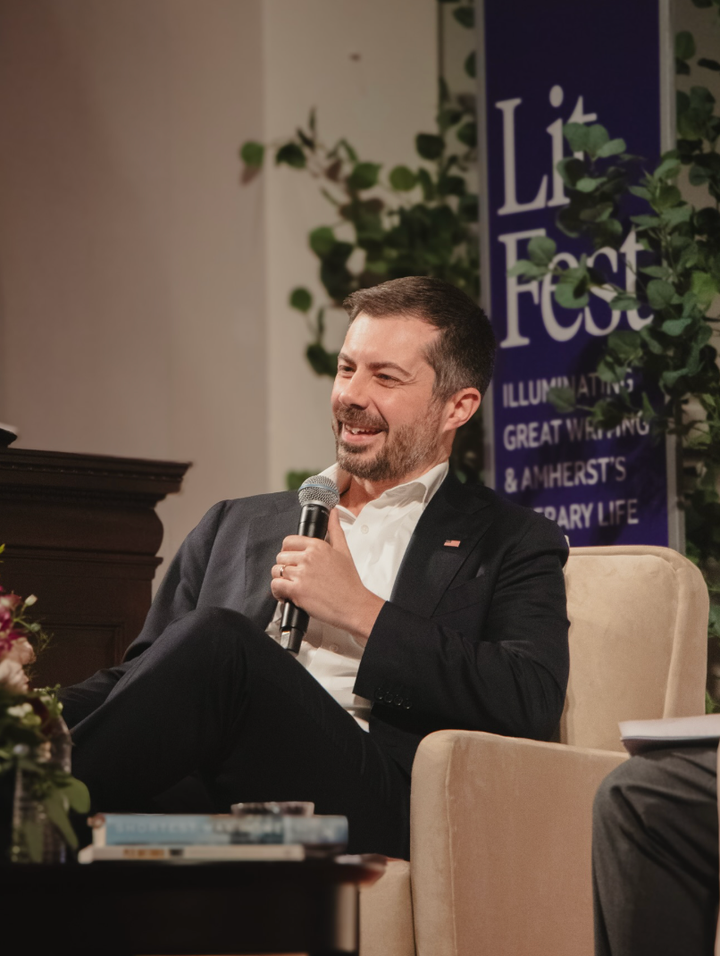Film Society x The Student: “Conclave”
In this Film Society x The Student review, Caden Stockwell ’25 argues that “Conclave,” a film that follows the election of a new pope, bears striking similarities to this year’s election season.
Few movies in recent memory have come at a more perfect time than 2024’s “Conclave,” which premiered at Amherst Cinema on Oct. 25. This, of course, is significant as it lands just a week and a half before the general election. In this tumultuous time, with an unbearably close race between former President Donald Trump and Vice President Kamala Harris, voters may be turning to film to assuage their anxieties. For those looking to distract themselves from the potential end of democracy on Election Day, a Ralph Fiennes-led prestige drama about the papacy may seem like just the right choice.
Unfortunately for these poor souls, “Conclave” is about as direct an exploration of the decay of modern electoral politics as it gets. The film, directed by Edward Berger, follows Cardinal Thomas Lawrence (Ralph Fiennes) as he is tasked with the responsibility of running a papal conclave. After the previous pope passes, a new pope must be elected, and a number of candidates quickly emerge. Some see the papacy as a burden they must take on, while others barely camouflage their longing for power.
The election begins with four main candidates: Bellini (Stanley Tucci), an outspoken liberal, Tedesco (Sergio Castellitto), a fascistic extremist, Adeyemi (Lucian Msamati), whose progressive economic views clash with his traditionalist social beliefs, and Tremblay (John Lithgow), a classical conservative. Although Lawrence insists that he is not interested in the papacy and is in fact going through a crisis of faith, he begins to gain supporters as well. The other major players are Sister Agnes (Isabella Rossellini), and Benitez (Carlos Diehz), an archbishop from Afghanistan who, despite arriving as an unknown, eventually coalesces some votes of his own.
As a viewer who is not religious and knows next to nothing about the papacy, I was worried about being lost throughout the film. Before watching, in fact, I had not the slightest idea what a conclave even was. As the film moved along, however, it became clear that my years of obsessively scrolling through X, formerly known as Twitter, during election season had paid off. When Bellini speaks of compromising his liberal values to support conservative Tremblay and stop extremist Tedesco from ascending to the papacy — ensuring the victory of the “lesser evil” — even the most disconnected viewer can understand that this is not just a movie about the church.
The film’s portrait of electoralism is cynical and upsettingly realistic. Though it begins with the pretense of different people advocating their different values and making a case that they are the best for the job, this quickly falls apart in a web of backstabbing and conspiracy. Priests and nuns are reduced to squabbling children, and values are readily dispensed in pursuit of power. Though the film ultimately ends on a hopeful note, I found it deeply upsetting. The conclave process is radically different from the U.S. Electoral College, and yet the outcome seems the same. In some sense, the film seems to argue that regardless of the systems or context, the very process of electing an individual to a position of great power comes with total moral decay.
It’s no surprise that Edward Berger’s new film uses a distinct setting to tackle familiar ideas. His last film, an award-winning adaptation of “All Quiet on the Western Front” (2022), uses the setting of the First World War to explore the ways in which young men are radicalized into frenzied nationalism, which feels especially relevant in the wake of MAGA. Relevance, however, does not make a good film. This can be seen quite clearly in “All Quiet on the Western Front,” which is truly terrible (a subject for another review).
“Conclave,” luckily, is a substantial improvement on Berger’s previous effort. Some of the flaws of that film do carry over, however. For instance, Berger brings back composer Volker Bertelmann, whose “All Quiet on the Western Front” score is one of the worst of the decade, and which won an Academy Award in a decision so embarrassing it will forever tarnish their credibility. Though he learned to tone it down a bit for “Conclave,” it remains bombastic, annoying, and distracting. It’s practically indistinguishable from the score of a “Transformers” movie, perfect for mindless explosions, but entirely unfitting for a somber and thoughtful papacy drama.
Berger also struggles to retain control of the film’s tone. For most of the runtime, “Conclave” is overly dour and self-serious. This is not necessarily a bad thing, if not for the final stretch, which is borderline farcical. I will not give away the final turn of events in “Conclave,” except to say that it truly surprised me. It’s the kind of bold and audacious final twist that I would generally applaud, but the ridiculousness of the conclusion doesn’t mesh with the sober tone of the rest of the film.
Despite these flaws, “Conclave” is a solid movie overall. The performances are deserving of every ounce of praise they are sure to receive throughout the upcoming awards season. The screenplay is precise and engaging, with loads of clever dialogue. It’s a great movie to recommend to your grandparents — well-made, entertaining, filled with relevant social commentary, and just out there enough to feel different while not seriously challenging any cinematic conventions. If your election anxiety isn’t quite strong enough, there is no better film to see.





Comments ()